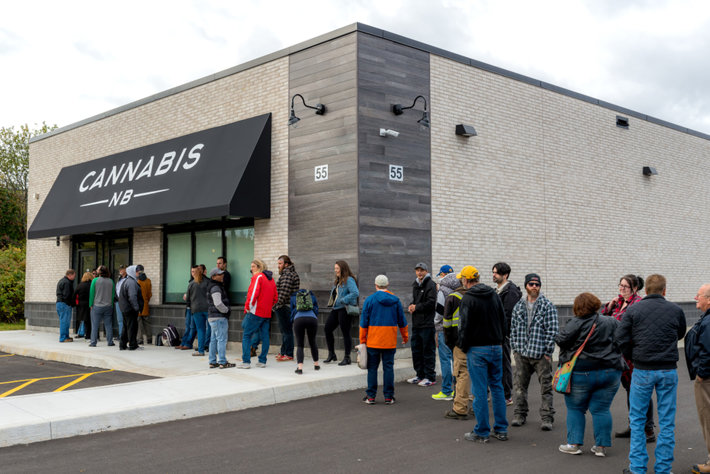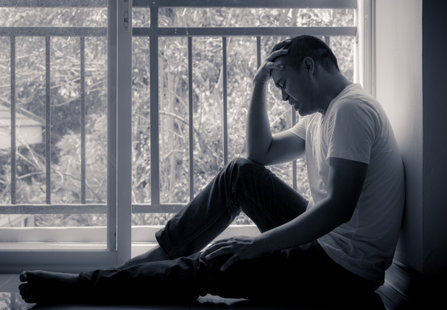Research Shows Cannabis Legalization Leads to a Spike in Use

Conversely, those opposed to cannabis legalization generally insist that legalization would “open the floodgates” of experimentation with the drug, leading to rampant substance abuse.
The truth? Neither side is 100% correct, though it does seem there is a connection between cannabis legalization and some increase in usage. Therefore, states considering legalizing cannabis should know that doing so will likely increase drug usage, and residents should be informed of this before they vote on it.
The Findings
In a particularly interesting study conducted by researchers at the University of Minnesota and the University of Colorado, experts surveyed thousands of pairs of twins across the U.S. to determine if cannabis legalization did affect overall usage patterns. Their findings, which provide some of the strongest evidence that legalization will lead to at least some degree of increased use, were published in the journal Addiction.
The researchers found that residents who lived in states where cannabis had been legalized used the drug 24% more frequently than those in states where cannabis remained illegal.
This set of research was able to get past the “correlation does not imply causation” counterargument because the researchers surveyed thousands of adult identical twins. Half of the twins lived in Colorado, where cannabis is legal, and half lived in Minnesota, where recreational cannabis is still illegal. Before 2014, when cannabis was still illegal in Colorado, there was little difference in usage between the adults living in Colorado and their twin siblings living in Minnesota.
“When specifically comparing identical twins, in which one now lives in a state where marijuana is legal and the other lives in a state where it is illegal, those living in the state with legal marijuana used cannabis 20% more frequently...”
After Colorado legalized cannabis in 2014, however, usage began to increase in Colorado among the adults included in the study. But for their twin siblings who lived in Minnesota, usage rates did not increase. The researchers summarized it best: “When specifically comparing identical twins, in which one now lives in a state where marijuana is legal and the other lives in a state where it is illegal, those living in the state with legal marijuana used cannabis 20% more frequently. Because twins share their genes and tend to share socioeconomic status, parental influences, and community norms, they provide well-matched controls for each other, enabling researchers to minimize alternative explanations for results and get at what causes what.” The fact that the researchers utilized pairs of identical twins in this study supports the argument that cannabis legalization leads to increased use.
More than 141 million Americans now live in states where recreational cannabis is legal. Likely a result of increasing legalization, cannabis usage among young adults ages 19 to 30 is at an all-time high, with about 43% of Americans in this age bracket reporting cannabis use in the past year and about 29% reporting using the drug in the past month.
Why Does This Matter?

Marijuana contains the mind-altering chemical THC, which produces habit-forming “highs” that users seek. According to the National Institute on Drug Abuse, marijuana is the most commonly used addictive drug after tobacco and alcohol. Further, usage rates are rising, not just for young people but for adults too.
Despite its growing popularity, people must understand that using marijuana can have negative short-term and long-term effects. These vary in severity, with risks for serious effects increasing the more marijuana someone uses and the longer they use it.
Some of the short-term effects of using marijuana include:
- Anxiety
- Cravings
- Depression
- Grouchiness
- Changes in mood
- Impaired memory
- Increased heart rate
- Changes in appetite
- Altered perceptions
- Altered sense of time
- Schizophrenia symptoms
- Impaired body movement
- Intense nausea and vomiting
- Hallucinations, delusions, and psychosis
- Breathing problems during and after use
Some of the long-term effects of using marijuana include:
- People who use marijuana for long periods of their life report lower life satisfaction, poorer mental health, poorer physical health, and more relationship problems.
- Long-term marijuana use has been linked to difficulty at work, hardship within social circles, and trouble at home and with the family.
- People who use marijuana for long periods report short-term and long-term memory loss.
- Marijuana affects brain development. When people use it at a young age, the drug can impair thinking and learning functions, Further, these changes may be permanent.
- Marijuana use has also been seen to reduce general knowledge and verbal ability, equivalent to a loss of four IQ points.
The above are not complete lists, but they show how using marijuana has serious risks for harmful short-term and long-term outcomes. And given that marijuana potency has increased in recent years, more potent cannabis could lead to more harsh long-term effects.
Even if marijuana is legal in someone’s state, they still should not use it.
People Who Use Cannabis and Cannot Stop Should Seek Help
Marijuana is addictive. Approximately 17% of people who seek help at drug rehab centers cite marijuana as their drug of choice. People who use marijuana and cannot stop are putting their lives in harm’s way physically, mentally, behaviorally, and emotionally. If you or someone you know is using marijuana and cannot stop, seek help at a qualified residential drug rehab center as soon as possible.
Sources:
- Addiction. “Impacts of recreational cannabis legalization on cannabis use: a longitudinal discordant twin study.” Addiction, 2022. onlinelibrary.wiley.com
- ScienceDaily. “Cannabis legalization boosts use by double digits. A first-of-its kind study of twins finds those who live in states where marijuana is legal use it 24% more.” Science Daily, 2022. sciencedaily.com
- NIDA. “Cannabis (Marijuana) DrugFacts.” National Institute on Drug Abuse, 2019. nida.nih.gov
- NIDA. “Drug Facts: Treatment Statistics.” National Institute on Drug Abuse, 2011. nida.nih.gov


 ®
®